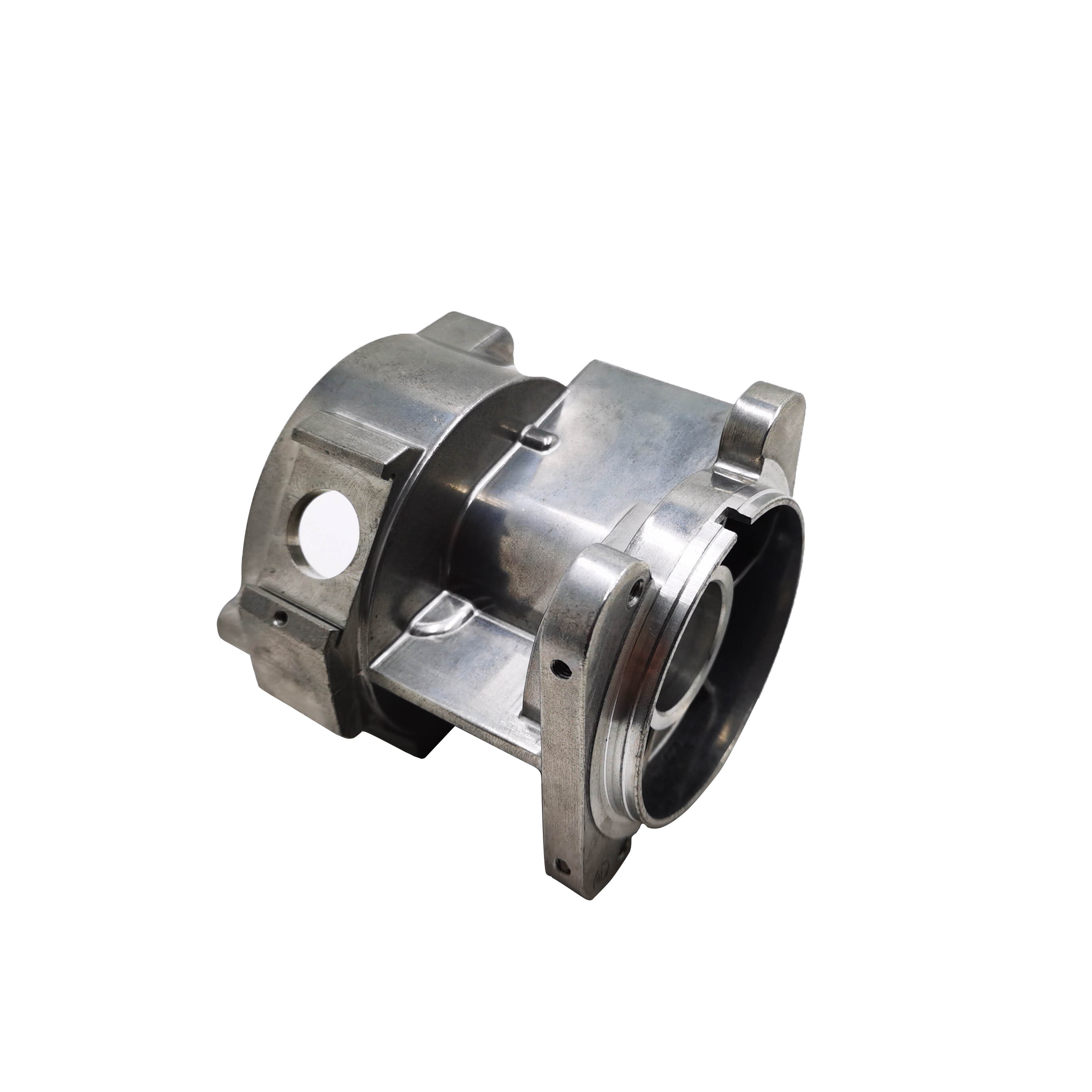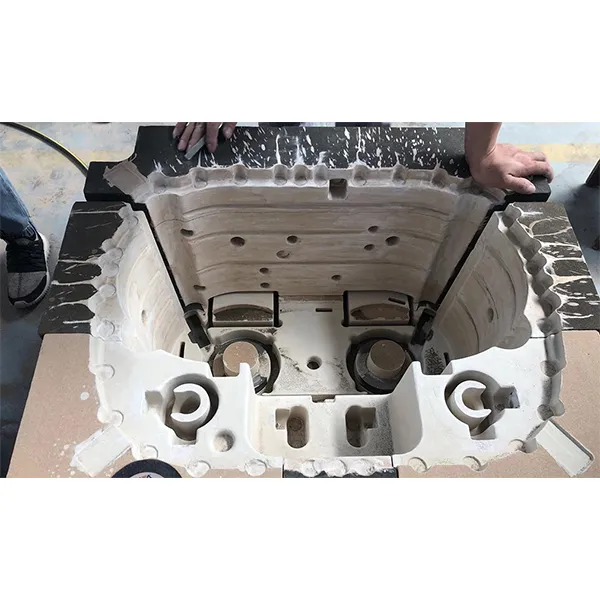Exploring the Duty of Shop Providers beforehand Modern Design Solutions
Shop services are necessary fit modern-day design services - Aluminum Casting Company. They bridge the void between conventional production techniques and the demands of modern markets. With innovations in automation and sustainability, shops are developing to fulfill the demands of fields such as aerospace and auto. This improvement questions regarding the effects for materials, processes, and future technologies. What difficulties and chances lie in advance for factory services in this rapidly transforming landscape?
The Evolution of Foundry Services in Design

The combination of computer-aided layout (CAD) and simulation software application has actually transformed the layout and production procedures, making it possible for foundries to create complicated geometries with greater precision. In addition, the change in the direction of environmentally friendly practices has brought about the adoption of greener technologies and recycling efforts within foundries. As industries significantly focus on personalization and fast prototyping, foundry services have actually increased their capacities, ensuring they stay crucial contributors to the design landscape. This evolution underscores the factory's important duty in supporting innovations throughout numerous sectors, including vehicle, aerospace, and power.
Trick Processes and Techniques in Modern Foundries
Modern foundries utilize a range of key processes and strategies that enhance the efficiency and high quality of metal casting. Among these, sand casting remains widespread as a result of its adaptability and cost-effectiveness. Using sophisticated technologies, such as computer-aided layout (CAD) and computer-aided production (CAM), permits for exact modeling and manufacturing, making sure high precision in part dimensions. In addition, investment spreading is favored for producing complicated geometries with exceptional surface finishes.
Moreover, automation and robotics improve manufacturing rate and uniformity while decreasing labor costs. Strategies like additive manufacturing are progressively integrated to create elaborate mold and mildews and cores, consequently decreasing product waste. The application of thermal analysis aids in maximizing spreading processes by anticipating and controlling solidification habits. Collectively, these methods and procedures exemplify exactly how modern shops are adjusting to fulfill the needs of contemporary design difficulties, ensuring remarkable item high quality and operational efficiency.
The Importance of Products Selection in Shop Services
Choosing the ideal products is vital in shop solutions, as it straight influences the mechanical residential properties, sturdiness, and overall performance of the final product. Various products possess distinct characteristics, such as tensile toughness, deterioration resistance, and thermal security, which should line up with the desired application of the actors parts. As an example, metals like light weight aluminum and steel are often picked for their strength-to-weight proportion, while alloys can enhance specific performance attributes.
The choice procedure entails taking into consideration variables such as availability, manufacturability, and expense, which can significantly influence job timelines and budget plans. Furthermore, developments in product science enable the development of cutting-edge composites and specialized alloys that accommodate emerging engineering challenges. An extensive understanding of product residential properties and their ramifications is crucial for engineers and foundry specialists to achieve successful end results in their jobs. This cautious option procedure eventually enhances the integrity and performance of completion items.
Factory Services in Aerospace and Automotive Applications
Factory services play a necessary function in the aerospace and automotive industries, where precision and performance are extremely important. These fields rely heavily on the manufacturing of facility elements that need to fulfill extensive quality requirements and withstand extreme conditions. Shops give essential services such as spreading, machining, and completing, making certain components are lightweight yet durable, vital for enhancing gas performance and safety.
In aerospace, foundry solutions add to the manufacturing of generator blades, engine parts, and architectural components, every one of which need intricate designs and high-performance materials. In the vehicle market, foundries supply engine blocks, chassis components, and transmission situations, focusing on toughness and weight decrease.
Advanced factory techniques, including additive production and accuracy spreading, are progressively utilized to fulfill the details needs of these industries. By offering customized solutions, foundry services help drive advancement and preserve competitive advantages in the fast-evolving aerospace and vehicle landscapes.
Technologies Driven by Factory Capabilities
Many developments in engineering are sustained by the advanced capabilities of factory services. These services enable the manufacturing of complicated geometries and high-performance products that are important for modern-day applications. Additive production, commonly understood as 3D printing, has actually seen considerable advancements through factory methods, enabling for the rapid prototyping of detailed styles. In addition, the capacity continue reading this to cast light-weight alloys has changed industries such as aerospace and auto, resulting in improved fuel efficiency and efficiency.
Factories are progressively incorporating clever modern technologies, such as automation and data analytics, to boost production effectiveness and quality control. These developments not only decrease waste but additionally enable modification at range, satisfying the details demands of clients. By leveraging sophisticated shop abilities, engineers can discover new frontiers in product style and performance, eventually driving progression across different sectors and developing a foundation for future improvements.
Future Fads in Shop Providers and Design Solutions
The future of shop services is shaped by arising fads such as lasting manufacturing methods, which prioritize environmental obligation. Automation and smart technologies are readied to improve effectiveness and precision, while raising personalization and versatility will certainly meet the advancing needs of customers. As these patterns develop, they will redefine the landscape of design solutions in the shop market.
Lasting Production Practices
As sectors progressively focus on ecological responsibility, sustainable manufacturing practices within factory solutions are coming to be necessary to modern-day engineering options. These methods concentrate on lessening waste, lowering energy consumption, and utilizing eco-friendly materials throughout the production process. By implementing techniques such as reusing scrap metal and enhancing melting processes, factories can especially lower their carbon impact. Additionally, the fostering of life process analyses permits manufacturers to evaluate the environmental influence of their items from creation to disposal. Collaborating with distributors committed to sustainability better enhances the efficiency of these see efforts. Ultimately, welcoming lasting production not just straightens with worldwide ecological goals yet likewise promotes innovation and competition in the rapidly advancing engineering landscape.
Automation and Smart Technologies
While numerous markets are welcoming technical innovations, factory services are experiencing a significant change with automation and smart technologies. The assimilation of robotics and automated systems boosts production efficiency, reduces human error, and increases the manufacturing process. Smart innovations, such as IoT and AI, enable real-time surveillance and anticipating upkeep, which enhance functional efficiency and decrease downtime. These improvements promote data-driven decision-making, enabling foundries to respond promptly to market needs and boost item top quality. Additionally, automation reduces labor costs and enhances work environment safety and security by handling dangerous tasks. As factory solutions remain to take on these technologies, they are positioned to redefine design solutions, bring about raised competition and sustainability in the production market.
Customization and Flexibility Patterns
Arising fads in shop services increasingly emphasize modification and adaptability to meet distinct customer needs. This change shows a more comprehensive need for tailored engineering solutions that adjust to particular task requirements and industry requirements. Firms are investing in innovative technologies, such as additive manufacturing and electronic modeling, allowing them to create customized elements efficiently and cost-effectively. Consequently, foundries are relocating away from one-size-fits-all approaches, offering customers the capability to customize layouts and materials in real-time. Furthermore, collaboration in between design discover this groups and factory services is coming to be a lot more incorporated, fostering advancement and speeding up time-to-market. This trend not only improves product performance yet likewise sustains sustainability by reducing waste through precise production processes.
Regularly Asked Concerns
What Are the Regular Expenses Related To Foundry Solutions?
Typical expenses related to factory services include material costs, labor fees, devices use charges, and expenses costs - Precision aluminum casting. These costs can differ extensively based on job complexity, quantity, and particular demands of the engineering solution involved
How much time Does the Shop Process Normally Take?
The foundry procedure generally takes anywhere from a number of weeks to a few months, relying on variables such as complexity, material needs, and manufacturing volume, which can substantially influence timelines and overall job shipment.
What Industries Benefit Most From Shop Solutions?
Industries such as automobile, aerospace, and construction benefit substantially from shop services. These industries rely on precision spreading and steel fabrication to develop complicated parts, enhancing product performance and operational performance in their particular applications.
What Qualifications Should Shops Have?
Shops ought to possess qualifications such as ISO 9001 for top quality management, ISO 14001 for ecological management, and particular industry qualifications like AS9100 for aerospace or IATF 16949 for automobile, making certain conformity and quality control.
Just How Do Foundries Make Sure Quality Assurance in Their Processes?

Foundry solutions are important in shaping modern-day engineering solutions. As design self-controls have progressed, the duty of foundry services has actually changed significantly to satisfy progressing industry demands. As sectors significantly prioritize personalization and rapid prototyping, factory solutions have increased their abilities, ensuring they stay necessary contributors to the design landscape. As industries progressively focus on ecological obligation, sustainable production practices within foundry services are coming to be vital to modern engineering options. In addition, partnership in between engineering groups and foundry services is becoming extra incorporated, cultivating innovation and accelerating time-to-market.